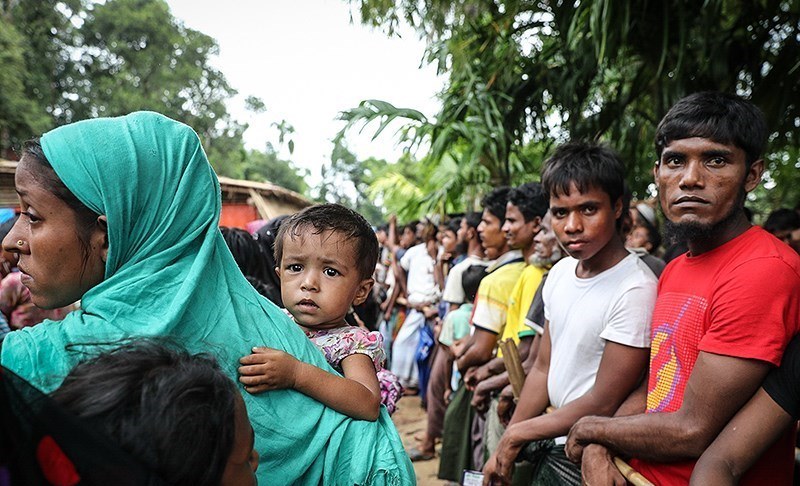After discovering that many Rohingya Muslims had attended the Tablighi Jamaat events in Delhi and Haryana, the ministry of Home Affairs has written to all states and union territories to test the Rohingyas for Covid-19 infections, according to reports in the Indian media.
Aung San Suu Kyi Condemns Human Rights Violations in Myanmar
This decision comes after intelligence agencies reported to the government that Rohingya Muslims living in different camps across the country had attended the religious congregations of the Tablighi Jamaat, the Islamic missionary, and hence there was a huge possibility of Rohingyas being infected with Covid-19.

A letter written to high ranking officials in India read — “It has been reported that Rohingya Muslims have attended Ijtemas and other religious congregations of Tablighi Jamaat and there is a possibility of their contracting Covid-19″.
Rohingya Muslims Big Threat To Indian Defense Installations In Jammu & Kashmir
The letter also mentioned the travel history of Rohingya Muslims who were residing in different camps in Hyderabad, Telangana, Dera Bassi (Punjab) and Jammu.
Meanwhile, Turkish press agency, Anadolu reported that the Rohingya Muslims living in refugee camps located in the Nuh district of Haryana are facing an acute shortage of food. Since a strict lockdown has been implemented in the country and state borders sealed, volunteers are unable to deliver food and essential supplies to the refugee camps.
Turkey Unhappy With China Over Humanitarian Aid ‘Message’ To Armenia
Speaking to Anadolu Agency, a Rohingya refugee said that he has been running from pillar to post to obtain vital supplies for the inhabitants of the camp, but in vain. He fears that people in the camp could die of starvation rather than coronavirus.
Half of the Rohingya Muslims depend on donations and help from the NGOs. The lockdown and the limited availability of essential supplies including food and medicines has lead to further panic in the refugee camps.
“When PM Modi announced the first lockdown on March 22, we were anxious but somehow managed the situation. But with Nuh district declared as a red zone, our problems have only increased. Police beat us up if we go out to buy food items and medicines, and thus we worry more about dying of hunger,” said a Rohingya refugee.
Kashmir Critics – Turkey & Malaysia Request India For HCQ Drug For Treating Covid-19
Guidelines from various health organizations state the benefit of washing hands and the use of sanitizer to avoid contracting the virus but for the camp inmates at Nuh, soap and clean water have also become a luxury.
In this situation, cases of malnourishment have rapidly spiked as well, the report says. In yet another Rohingya camp in Jammu, a worker for Save the Children (a voluntary organization), Abdul Rahim says — malnourishment is already an existing problem which has only been intensified with Covid- 19.
Khaleda Zia – The Face of Pakistan in Bangladesh Sentenced To 7 Years in Prison
“The families are impoverished and receive poor quality of food. Now, because of the lockdown, it has become inconceivable to get proper food, which is taking a severe toll on women and children,” a refugee said.




